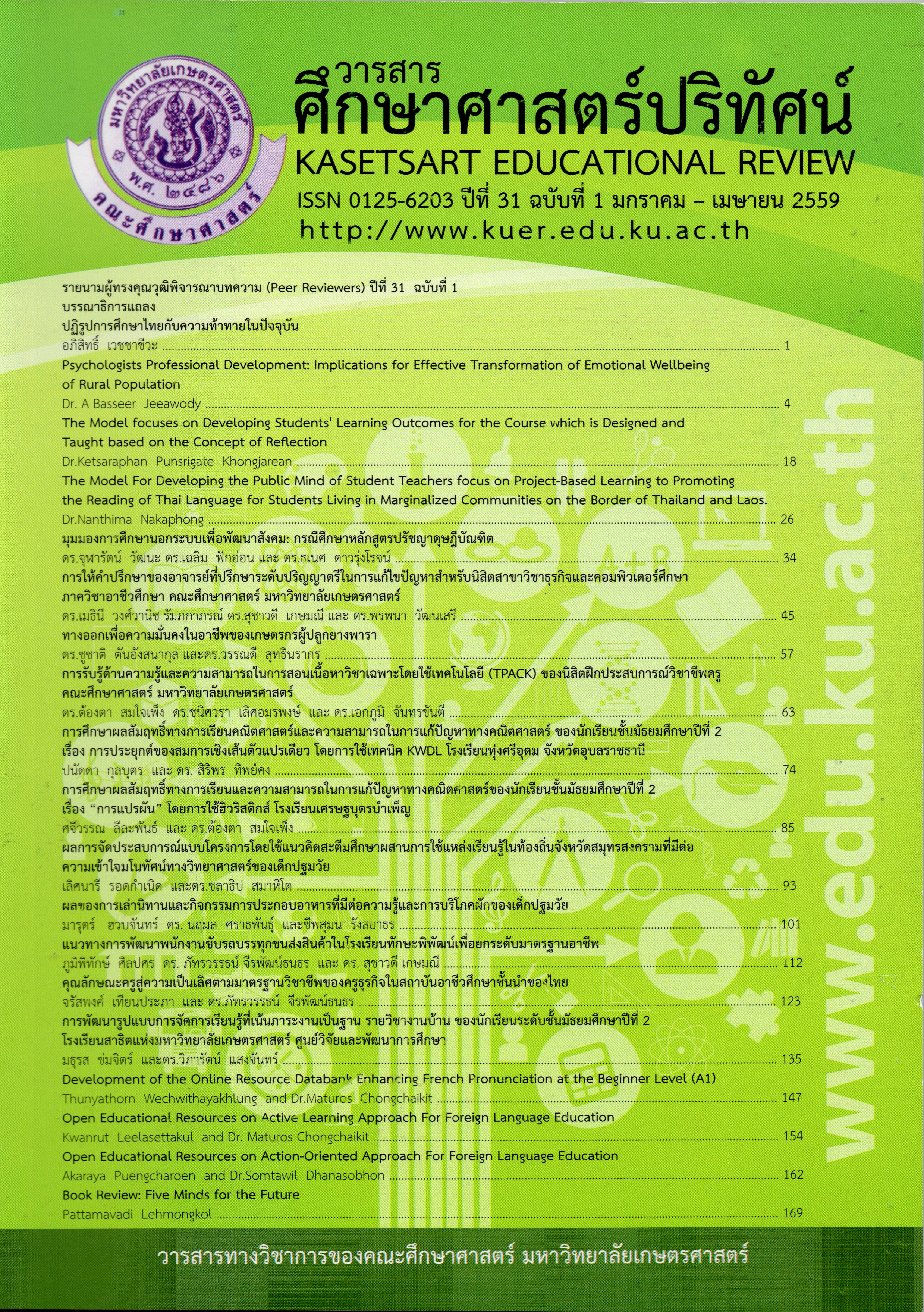The Model for Developing the Public Mind of Student Teachers focus on Project-Based Learning to Promoting the Reading of Thai Language for Students Living in Marginalized Communities on the Border of Thailand and Laos
Keywords:
Public Mind, Project-Based LearningAbstract
The purpose of this research was to develop the model for developing the Public Mind of student teachers focusing on Project-Based Learning to promote the reading of Thai language for students living in marginalized communities on the border of Thailand and Laos. The basic concept is a systematic approach for the development of competencies relating to the teaching profession with the Project-Based Learning. The CIPP approach was used for the evaluation. The target groups were: 93 student teachers from the University of Phayao, 51 tribal students from the Ban Ton Pung communities (Yao, Karens, Akha, Muser), 7 teachers, 30 parents and 8 soldiers. Information was collected from: the synthesis of papers and research, actual observation, interviews, tests, public evaluations, and project evaluation. Tools for the research were: recording research, observation, interview, examination, community awareness evaluation form and project evaluation form. The statistics used for data analysis were: percent, mean, standard deviation, t-test paired, efficiency of process/efficiency of product (E1/E2) and effectiveness index.
The results of developing the model were: a flowchart showing relationships involving five important components. The first component was the need for input to include internal factors: men, money, management, materials, and external factors that include community contexts. The second was that the 5 steps of Project-Based Learning include problem, discussions, creating, implementing, and evaluating. The third, output focus on volunteer project including: problem, objective, approach, management, team, and area. The fourth was that the process focuses on Public Mind that competencies relating to the teaching profession including attitude, knowledge, and practice. The fifth, the impact focus on marginalized communities including change tribal students behavior and more sustainable communities. The results of trying out this model showed that the competencies of attitude and practice were at very good levels. The competencies of knowledge was pass criteria 80% calculated equal 94.62%. The Public Mind of student teachers had a significantly higher increases at 0.05 levels. The efficiency of process/ efficiency of product (E1/E2) were 82.45/84.02 which were higher than the present standard of 80/80 and the effectiveness index of 0.62 showed that the student teachers increase in Public Mind was 62%. The evaluation model showed that context, input, process, output, and impact were all at very good levels.
Downloads
Issue
Section
License
บทความทุกบทความเป็นลิขสิทธิ์ของวารสารคณะศึกษาศาสตร์ มหาวิทยาลัยเกษตรศาสตร์ วิทยาเขตบางเขน
วารสารศึกษาศาสตร์ปริทัศน์ (Kasetsart Educational Review)






